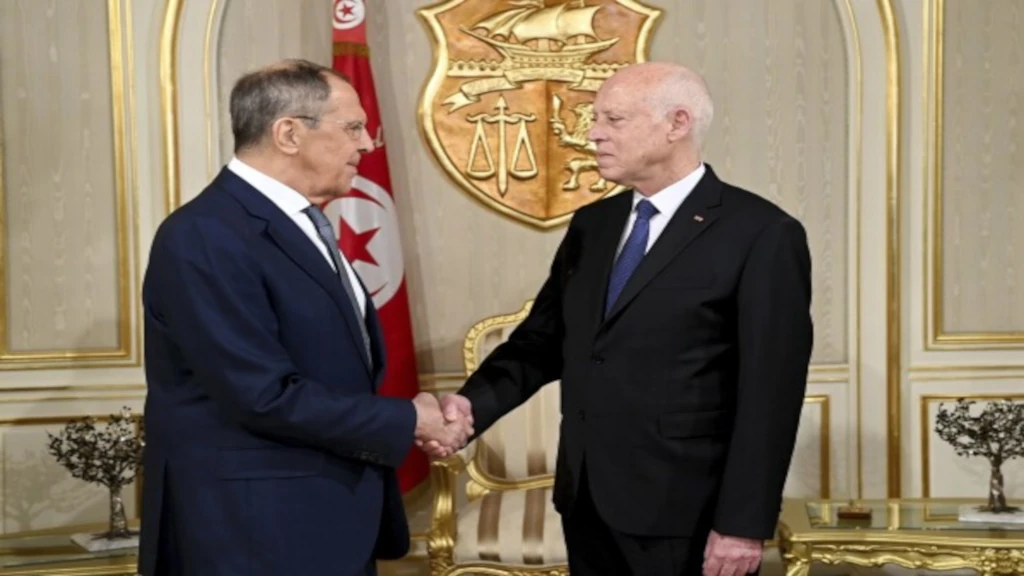This photo provided by the Tunisia presidency shows Tunisian President Kais Saied, right, shaking hands with Russian Foreign Minister Sergey Lavrov, Thursday Dec. 21, 2023 in Tunis. Russia is working to deepen political and economic ties and spread its narrative about wars in Ukraine and Gaza. (Slim Abid/Tunisian Presidency via AP)
TUNIS, Tunisia (AP) — Not far from where Russia’s Foreign Minister is holding meetings in Tunisia on Thursday, large green billboards advertising Russia Today, a Kremlin-backed media outlet, have been recently erected.
The ads are yet another indicator that Russia continues to expand its presence in North Africa as support for western powers across the Arab World fades amid the Israel-Hamas war in Gaza.
With deep trade ties and large diaspora populations in western Europe, North African countries have long maintained close, albeit complicated, relations with the European Union.
Morocco, Algeria and Tunisia also enjoy close relations with the United States.
But since October the region has been convulsed by protests about Israel’s latest war with Hamas, including in Tunis, where demonstrators have rallied in front of the United States and French embassies, chanting for a free Palestine.
Arab Barometer, a non-partisan research firm, published data last week that suggested the United States’ popularity fell 30 percentage points in the weeks after the Israel-Hamas war began. It found France’s image also suffered.
“Tunisians’ views on the world shifted in ways that rarely happen even over the course of a few years. There is no other issue across the Arab world to which people feel so individually and emotionally connected,” Arab Barometer researchers concluded, based on 2,406 interviews.
In the vacuum created by western powers’ diminishing popularity, Moscow has doubled down on efforts to strengthen its ties to North Africa and spread its narrative about issues including Ukraine and Gaza. Russian officials are exchanging visits with North African leaders, seeking new trade agreements and signing joint memorandums that cover issues ranging from Ukraine to Syria.
“It has become obvious that some external forces are not averse to using the next escalation of the Palestinian-Israeli conflict in their own interest, to ignite the fire of a regional war,” Russian Foreign Minister Sergey Lavrov said at this week’s Arab-Russian Cooperation Forum in Marrakech, alluding to the United States.
Marrakech was the first destination on Lavrov’s tour through North Africa. He arrived in Tunis on Wednesday evening to meet with President Kais Saied and Tunisia’s foreign minister, who visited Moscow in September, when the two countries announced a new grain deal.
Before Russia’s invasion of Ukraine, Tunisia received roughly half of its total wheat imports from Ukraine.
While lamenting pressure from countries that isolate Russia, Lavrov announced new efforts to expand energy and agriculture trade with North Africa.
He also contrasted Russia’s positions with those of the United States in the Middle East.
Source: AP, 21st December 2023
 afric-Invest
afric-Invest